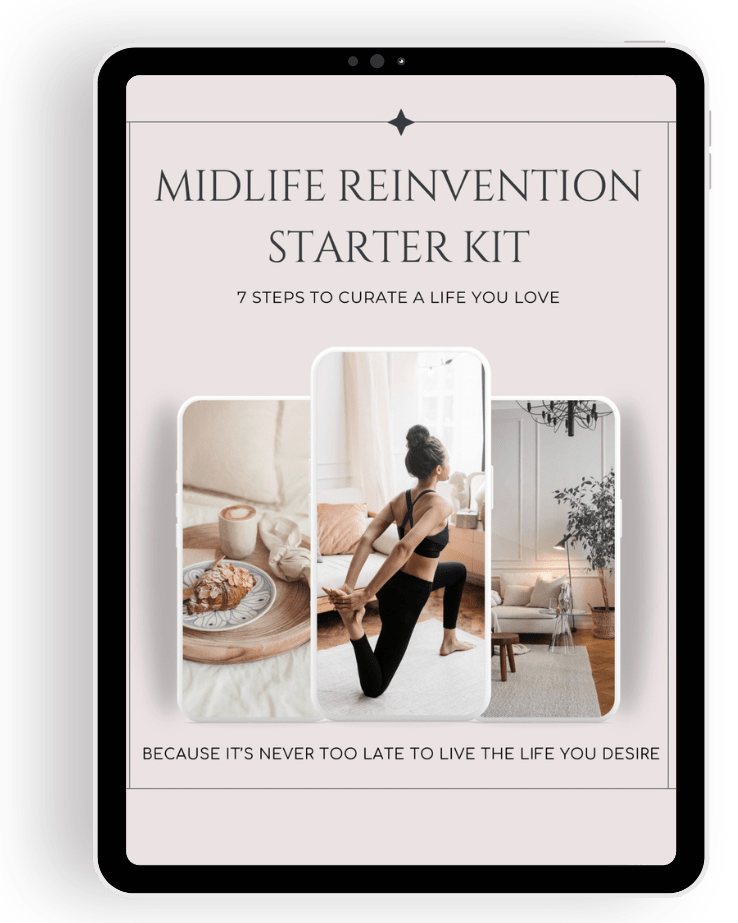According to a YouGov study on sleep, 87% of Britons say they look at their phone or tablet within an hour before going to bed (myself included), with 25% claiming they look at their phone immediately before going to sleep. On top of this, 74% of people say they keep their phones in the bedroom at night.
RELATED: Tips for getting a good night’s sleep
If you want to know the true cost of using your phone before bed, keep on reading as in today’s post I share the consequences that late-night screen time can have on your sleep, mood, and overall health.

The downsides of digital nightcaps
While the blue light emitted from electronic devices has often been attributed to things such as sleep disruption, research suggests a broader negative impact, with links to such things as:
Cognitive impairment
The blue light emitted from your device’s screen is part of the light spectrum most active in your sleep cycle. When stimulated, this part of the brain suppresses the production of the sleep hormone melatonin, making it difficult for people to switch off at night.
The resulting sleep deprivation from this stimulation can lead to excessive daytime sleepiness and a loss in concentration that can hinder the ability to perform basic daily tasks, more commonly known as ‘brain fog’.
Poor physical health
Skimping on sleep due to late-night scrolling can cause a ripple effect that can pose profound long-term health implications. Sleep deprivation has been linked to a myriad of physical health issues, including high blood pressure, heart disease and obesity.
Poor sleep quality is known to negatively impact hormones that regulate everything from blood sugar to appetite.

Depression, stress, and anxiety
While not explicitly focused on late-night scrolling, research conducted over the last few years has suggested a strong link between depression and prolonged periods of screen time, especially in adolescents.
A 2023 study conducted by The Yale School of Medicine reported that more than 5,000 9–10-year-olds’ time spent on digital technology directly correlated to the likelihood of developing anxiety and depression within a couple of years.

Unplug and reset
Whilst there are many consequences strongly associated with late-night screen time, there are also many ways to combat the urge to reach for your phone before bed.

Here are a few top tips to help you unplug and reset:
Establish a nighttime routine
Switching off your devices a few hours before bed allows your brain to de-stress and prepare for sleep. Replacing screen time with calming bedtime rituals such as taking a bath, reading, or engaging in light exercise can help signal to your body that it’s time for bed.

Utilise digital detox tools
Ironically, you can use your devices to help support your sleep routine, by utilising a wide range of apps and functions. Features such as ‘sleep mode’ can help reduce blue light and block notifications to help your brain de-stress before sleep.
There is also a wide range of apps available, such as Headspace or Calm, that you can use to establish better nighttime routines by providing features such as guided meditation sessions to help unwind in the evening.
Re-evaluate your sleep environment
Simple changes to your sleep environment can have a significant impact on the quality of sleep you get. Getting rid of electronic stimuli and light-emitting devices can help eliminate potential distractions and remove the temptation to use your devices late at night.
Optimising comfort, using black-out blinds, and wearing earplugs to bed are other great ways to improve your sleep routine.

Natural sleep remedies
Essential oils such as lavender and chamomile are also known for their calming properties. Diffusing these oils or applying them topically to the skin (after diluting) can help create a peaceful environment and promote better quality sleep.
Swapping the blue glow of your laptop or phone for a relaxing bedtime routine is an investment in your overall health. The issues in your sleep that are worsened by late-night screen time can lead to a vicious cycle, ultimately increasing the risk of serious health problems later in life.
Creating a sleep-conducive environment and using natural sleep remedies such as essential oils can help break this cycle and positively contribute to your overall health.
7 Ways to Simplify Your Digital Space & Gadgets
- Declutter Your Digital Space: Delete any files, applications, or programs that you no longer use. Systematically organise your folders and files, so that you can easily find what you need. Use cloud storage services such as Google Drive (my favourite) or Dropbox to store your files online and free up space on your device.
- Unsubscribe From Emails: Unsubscribe from any emails that you no longer want to receive. This will help reduce clutter in your inbox and save you time.
- Use Productivity Apps: Use productivity apps such as Trello (my favourite), Asana or Todoist to organise your tasks, appointments and projects. These apps can help you manage your time more efficiently and reduce stress. CHECK OUT: My Favourite Apps that Support My Life
- Streamline Your Social Media: Limit the number of social media accounts you use and set boundaries for the amount of time you spend on them. Unfollow accounts that don’t add value to your life and avoid comparing yourself to others online.
- Automate Tasks: Use automation tools like IFTTT or Zapier to streamline repetitive tasks such as scheduling social media posts or sending email reminders.
- Simplify Your Gadgets: Consider consolidating your devices by using a smartphone with a large screen instead of a separate tablet or laptop. Purchase a smartwatch to receive notifications and track your fitness goals instead of a separate fitness tracker. CHECK OUT: 5 Ways Your Smartphone Can Elevate Your Life
- Reduce Cable Clutter: Use cable organisers or wireless charging pads to reduce the number of cables on your desk or bedside table.
By following these tips, you can simplify your digital space and gadgets, making your life easier and more efficient.

Feel free to sign up to my Friday Morning Love Note HERE! This isn’t just a newsletter - it’s your invitation to pause, reflect, and realign with you. Every week, we’ll journey together to uncover the small, meaningful shifts that will help you design a life that feels uniquely and beautifully yours. Each week, I’ll deliver fresh intentions, uplifting tips, and simple shifts to inspire purposeful, creative living.





[…] Digital detox: Take a break from screens and social media to recharge your mind and focus on the present moment. READ MORE: Digital Detox; the health benefits of unplugging & resetting? […]